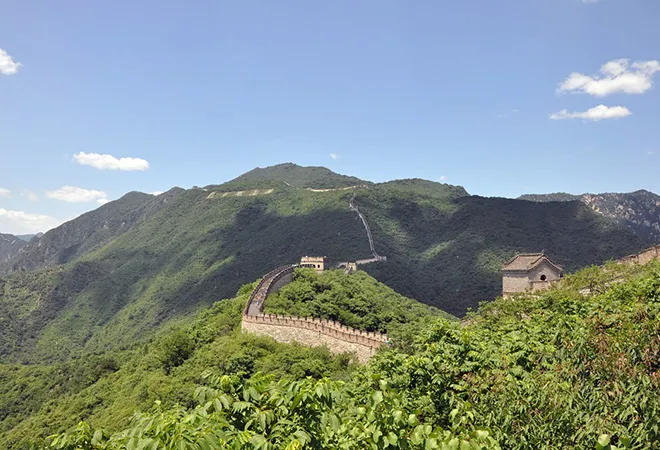-
CENTRES
Progammes & Centres
Location

As China assumes the presidency of BRICS in 2017, the question of Chinese vision of global governance has once again come to the forefront. With the global order undergoing a transformation, China has increasingly enthralled itself in promoting a refurbished global order defined by multipolarity. Essentially, China’s fascination with setting the terms of global governance stems from the country’s political and economic rise and the notion that for long the West has disdained Beijing from the stewardship of global governance norms.
For long, China has selectively used a two-pronged approach of promoting the idea of its peaceful rise alongside its assertiveness through warnings such as "no countries should expect us
Read Also | < style="color: #960f0f">Chinese regional hegemony is a bridge too far
Interestingly, China’s vision of global governance dates back to the ancient idea of the tributary system. The tributary system was an asymmetrical and hierarchical order, according to which the Chinese recognized China as the Central Kingdom, located at the center of the universe. The Chinese emperor was identified as the Son of Heaven, who held the Mandate of Heaven and was consequently the legitimate ruler of "all-under-Heaven" (Tianxia).
At present, China seeks active participation in the issue of global governance for a number of reasons, namely reinstatement of its past glory, advancement of the country’s international status, promotion of its soft power diplomacy, reformation of international institutions so that they would in part reflect Chinese interests and preferences and most importantly ensure China more decision-making power in various international institutions and organizations.
Read Also | < style="color: #960f0f">India needs to find other ways to deal with China
To shore up its stature in international politics and consequently its stake in global governance, the Chinese leadership recognizes the importance of the accomplishment of its two “centenary goals” proposed by 18th CPC National Congress (2012), of establishing a prosperous society by 2021 and a modern socialist country by 2049. Thus, it is on the foundation of national rejuvenation that the country seeks to construct its image of a prevailing power in world politics. Consequently, to create an external environment conducive to the country’s ascendance, Chinese President Xi Jinping has emphasized the strategy of neighborhood diplomacy and a new type of major power relationship (xinxing daguo guanxi). China has not only strengthened its bilateral strategic partnerships with countries across the globe but also voiced its opinion on global governance reforms at various multilateral platforms such as BRICS, United Nations (UN), G20, Bretton Woods bodies and the like.
Essentially, the reforms that China insists upon refer to the restructuring of international institutions such as the Bretton Woods bodies (including the World Bank and International Monetary Fund) and the United Nations Security Council (UNSC). In its bid to bring about such reforms, of late China has embarked upon its own process of global institution building. A case in point is the institution of a Silk Road Fund, which seeks to enhance connectivity and trade within the framework of the 21st-century Maritime Silk Road and the Silk Road Economic Belt initiative; the BRICS-led New Development Bank; and the Asian Infrastructure Investment Bank (AIIB).
This commentary originally appeared in Forbes.
The views expressed above belong to the author(s). ORF research and analyses now available on Telegram! Click here to access our curated content — blogs, longforms and interviews.